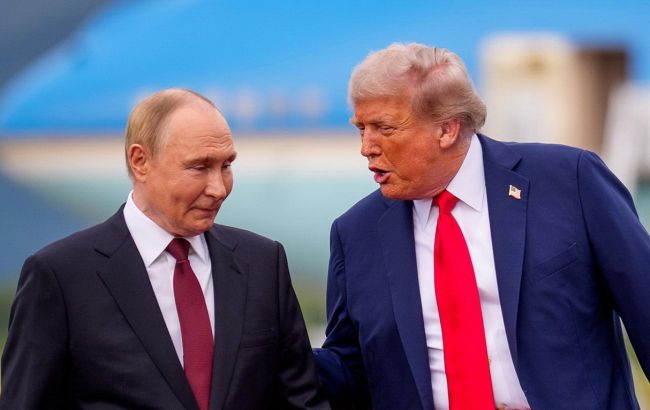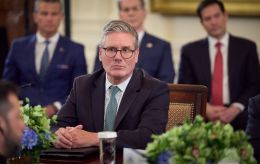CIA vs State Department: Trump team split over talks with Putin
 Photo: Vladimir Putin and Donald Trump (Getty Images)
Photo: Vladimir Putin and Donald Trump (Getty Images)
US intelligence agencies have reached different conclusions about whether Kremlin leader Vladimir Putin is ready to discuss a real end to the war in Ukraine, reports The Wall Street Journal.
According to several current and former officials, earlier this year, the State Department’s Bureau of Intelligence and Research (INR) expressed doubt about claims that the Russian leader was ready to negotiate an end to the war in Ukraine.
The State Department’s intelligence disagreed with the more optimistic assessment of the Central Intelligence Agency (CIA) about potential negotiations.
INR analysts had voiced the opposite view for months before US President Donald Trump met with Kremlin leader Vladimir Putin in Alaska.
Former and current officials say this disagreement was reflected in the president’s daily brief. As WSJ notes, the State Department’s dissent over Russia’s willingness to negotiate had not been previously reported.
According to the State Department, several analysts were later dismissed in connection with an administration directive to reduce the number of federal employees.
A State Department spokesperson explained the leaves as part of a departmental reorganization, adding that analysts in the Russia–Eurasia group were not targeted and that the department remains capable of carrying out vital assessments.
WSJ notes that intelligence assessments often play a key role for presidents in major diplomatic negotiations. Some former officials fear the administration might not get an accurate picture of events if intelligence analysts feel compelled to provide assessments aligned with policy.
According to sources, early in the Trump administration, US officials requested numerous classified assessments and briefings from intelligence analysts on the Ukraine case to determine Putin’s objectives and assess his readiness to negotiate an end to the war.
Several people familiar with the reports said that CIA analysts, responding to the administration’s requests, prepared assessments concluding that Trump might find opportunities for talks with Putin.
Two former officials said the CIA’s assessments were at times optimistic about the prospects of finding common ground with the Russian leadership.
Meanwhile, the State Department’s intelligence concluded that Putin ultimately would not want to abandon his maximalist demands — a conclusion that outside analysts have also reached in recent months.
WSJ also reports that in the spring of 2025, the head of the State Department told analysts during staff meetings that ongoing disagreements were undermining INR’s credibility among administration officials. Then, in July, three analysts working in the Russia–Eurasia group were dismissed, and another analyst resigned.
The State Department shut down the intelligence office that worked with private-sector experts, as well as another one responsible for declassifying intelligence for sharing with allies, former employees said. The department also merged the INR groups for Europe and for Russia and Eurasia, and several Europe analysts were either laid off or reassigned.
The State Department said that these measures were taken for staffing and security reasons.
Trump–Putin meeting canceled
In mid-October, US President Donald Trump held another phone call with Kremlin leader Vladimir Putin.
Shortly afterward, the American leader announced that a new summit between them would take place in the coming weeks — this time in Budapest, the capital of Hungary.
US Secretary of State Marco Rubio and Russian Foreign Minister Sergey Lavrov were to handle the preparations for the meeting. However, soon after their phone call, Trump canceled the summit.
According to media reports, Russia did not change its maximalist demands for ending the war in Ukraine, and Trump publicly said he did not want to waste his time in vain.
On October 23, the US Treasury Department announced sanctions against Russia’s largest oil companies, Rosneft and Lukoil. Dozens of their subsidiaries also came under restrictions.
In its statement on the sanctions, the US added that it urges Russia to immediately agree to a ceasefire in Ukraine.

